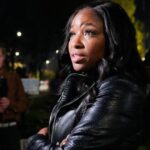
It’s a bit like Nickelback winning the Grammy for Album of the Year or the “Ghostbusters” remake taking home the Oscar for Best Picture.
This week, the world’s top marketers gather in the south of France for the Cannes Lions International Festival of Creativity, sort of the advertising industry’s version of the Oscars.
Here, the Don Drapers and David Ogilvys of the trade rub elbows and congratulate themselves on who managed to move the most units of whatever the world didn’t really need over the past year.
I confess to having been unaware of the festivities until just this week, and my introduction to the whole shindig hasn’t led me to believe that it’s particularly credible.
That’s because, according to The Wall Street Journal, one of the biggest awards of the week — “Creative Marketer of the Year” — will go to a company that managed to shave 30 percent off the American sales of its best-selling product with one, um, creative advertising move.
Trending:
According to the Journal’s report Monday, despite the not-so-temporary destruction of Bud Light’s market share over the Dylan Mulvaney debacle, Anheuser-Busch InBev will collect the award at the festival.
It is worth noting that the awards were announced in March, just prior to the Mulvaney campaign blowing up in the company’s face. However, if there was ever a case for revoking an award, it’s this.
AB InBev won the award last year as well; this represents the first consecutive wins for any company in the category. Not only that, the opening seminar of the festivities was given by the company’s chief marketing officer, Marcel Marcondes.
Despite the fact he used the event to tout AB InBev’s “relentless focus on connecting with consumers in meaningful ways,” he also touched upon the fact that the relentless focus to connect with consumers doesn’t always end well, even when it ends meaningfully.
“In times like this, when things get divisive and controversial so easily, I think it’s an important wake-up call to all of us marketers, for us to be very humble,” Marcondes said.
He added the company is “really reminding ourselves of what we should do best every day, which is to really understand our customers, which is to really celebrate and appreciate every customer that loves our brands, but in a way that can make them be together, not apart.”
Marcondes’ remarks echoed those made in a non-apology apology letter penned by Anheuser-Busch CEO Brendan Whitworth as the Mulvaney disaster began to unfold, in which he said the company was “in the business of bringing together over a beer” and that he would “continue to work tirelessly to bring great beers to consumers across our nation.”
— Anheuser-Busch (@AnheuserBusch) April 14, 2023
Not that this is helping any: In spite of the fact that the creative decision to make transgender TikTok “influencer” Mulvaney the face of a social media ad campaign was well over two months ago and the company has repeatedly tried to creatively convince the brand’s Middle American drinkers it didn’t mean to rub woke DEI seminar values in their collective faces with the move, sales of the beer continue to suffer.
According to the New York Post, for the week ending June 10, sales of what was formerly America’s best-selling brew dropped 26.8 percent year-over-year, as per data from Bump Williams Consulting and NielsenIQ.
“That’s wider than the 24.4% drop seen during the prior week — and topped the all-time previous worst plunge of 25.7% during the week ended May 20 — since the beer giant got into bed with Mulvaney on April 1,” the Post noted.
Nor, in fact, was the damage limited merely to Bud Light.
“Anheuser-Busch’s other brands also took a step backward for the week ended June 10, according to the data. Sales of Budweiser were down 10% compared to a 7.8% decline the previous week, while Natural Light was down 2.3% vs. a 1% decline. Michelob Ultra – the nation’s No. 3 beer — was down 2.4%,” report said.
So far, the boycott from conservative consumers has cost the company over $20 billion, according to estimates.
In Cannes, however, this apparently didn’t matter. And why should it?
After all, awards ceremonies are rarely meritocracies, particularly the more removed from the average person the participants are. These are supposed to be like the Oscars of the ad business — and just like the actual Oscars, wokeness and social consciousness count a great deal more than artistry, creativity or effectiveness.
Are you boycotting Bud Light?
Yes: 100% (5 Votes)
No: 0% (0 Votes)
To those gathered in Cannes, DEI and ESG aren’t three-letter acronyms that are four-letter words. They’re credos to live by, a way for elites to mold the world through social engineering.
So what if AB InBev’s most visibly creative move caused its best-selling brand in its largest market to shed over a quarter of its sales volume?
If anything, the company should be lauded for this. Why, it basically committed brand seppuku in order to appease the woke deities. Its sacrifice should be met with a standing ovation, not relayed as a cautionary tale. In fact, had the awards been announced after the Mulvaney catastrophe, one doubts there would have been any change in who got the prize. It’s the consumer’s fault for being so closed-minded to these folk, not the company’s problem.
And plus, AB InBev is confident Middle Americans have short memories. Speaking to AdAge from the festival, Marcondes insisted that “Bud Light is coming back.”
Well, it hasn’t yet — and not only that, but two months into the Mulvaney debacle and sales of the brand are still slowing. The incident has become so ingrained in the national consciousness that a company tripping over itself to act woke and alienating customers in the process has become colloquially known as “BudLighting.”
If Marcondes and Co. manage to pull off Bud Light’s comeback in a speedy manner, then they will deserve the Creative Marketer of the Year award.
As for this year’s trophy, they’d probably be better off publicly announcing they’d melted it down and recycled it into cans with Larry the Cable Guy’s face on the front.





